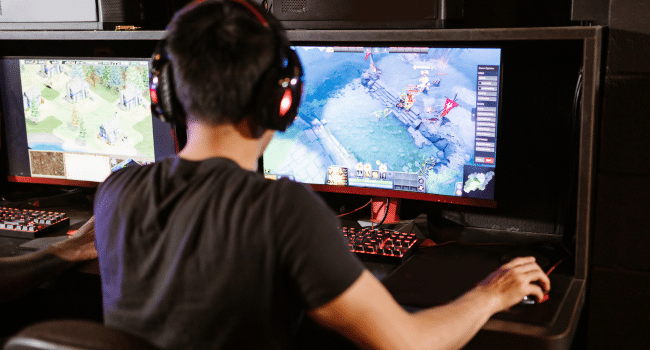Table of Contents
Gaming has evolved from a niche hobby to an international entertainment powerhouse. With more than 1.1 billion online gamers across the globe, this community is thriving and welcomes people of all ages and backgrounds.
Here’s how the gaming industry looks today – after undergoing more than a few monumental changes in recent years.
-
The rise of online gaming
There’s been a seriously big shift in gameplay trends. Where single-player experiences once reigned supreme, online gamers now flock to larger, server-based games to play and compete with others.
This emergence of massive multiplayer online games (MMOs) has highlighted the social aspects of gaming – and how many of us now seek connection. The most popular online games come with their own forums, chat functions and communities, which include thousands of players from across the globe.
-
The mobile gaming revolution
Smartphones have also transformed the gaming landscape.
Available through applications and via browser, mobile games are simply more accessible than their PC or console-based counterparts. Mobile formats have increased the popularity of casual gaming, allowing users to simply pick up where they left off and play at a time that’s most convenient.
This mobile resurgence has tanked sales of other gaming formats, but especially portable consoles. Over the entire lifetime of the PlayStation® Portable, for example, Sony sold just 76.4 million units – that’s less than half the total sales for its PlayStation® 2 predecessor.
-
Updated hardware
The gaming industry has witnessed huge technological advancements. With major improvements in graphics and processing power, gaming can be cinematic for those who invest in a powerful setup.
With the addition of intelligent technologies like VR and AR, players can experience gaming in the most immersive ways possible.
Cloud-based games reduce the processing burdens on local computers too, with processing and rendering carried out by remote servers. This gives mobile players more speed and memory to play their favourite games.
-
Changing business models
Gaming has witnessed a gradual shift from one-time purchases to free-to-play services, especially those on the App store. However, some games also offer microtransactions and subscription services.
Many players prefer a play-as-you-go approach. This is certainly the case for those who want to play in an online casino. Like many other classic arcade games, you can play online bingo safely and legally, with protection and assurance from the Gambling Commission.
-
A wider cultural impact
Finally, it’s important to note that gaming is still a mainstream form of entertainment. The future looks very different with the new generation of games, platforms and players.
Many games play an important role in education and training, allowing learners to get creative. There’s a growing acceptance of gaming as a legitimate career path too, especially through streaming and esports.
The influence of mobile gaming on popular culture is undeniable.
